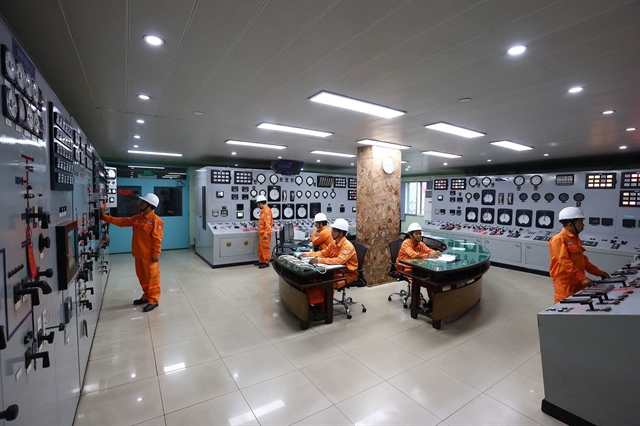
The operation centre of Thủ Đức Thermal Power Plant. — VNA/VNS Photo Huy Hùng
Việt Nam Electricity (EVN), Việt Nam National Coal and Mineral Industries Holding Corporation Limited (TKV) and Đông Bắc Corporation are working together to come up with solutions to ensure an adequate supply of coal for electricity production.
The supply must be reliable as thermal power is expected to rise significantly to meet the electricity demand for socio-economic development in 2025.
The Ministry of Industry and Trade has developed three scenarios for electricity supply and operation in 2025. The electricity load growth is projected at 11 per cent in the base scenario and 13-14 per cent in the highest scenario.
Coal demand for thermal power production is expected to remain high across all scenarios, particularly for plants in the northern region. Consequently, most thermal power plants will need to operate between 6,400 and 6,500 hours in 2025, necessitating efforts to secure an adequate coal supply under all circumstances.
Since September, EVN’s thermal power plants have been negotiating coal supply contracts with TKV and Đông Bắc for 2025.
These companies all committed the efforts to enhance coordination to develop appropriate coal supply plans for electricity production as well as improving coal quality.
EVN’s Deputy Director General Ngô Hải Sơn said that ensuring adequate coal supply for electricity production and national energy security are the top political task of EVN, TKV and Đông Bắc.
In the first ten months of this year, coal supply for electricity production was assured. Minister of Industry and Trade Nguyễn Hồng Diên said that the electricity supply must increase by at least 11 per cent next year to meet the power demand for socio-economic development.
Despite the efforts to accelerate energy transition, Việt Nam remains heavily dependent of coal-fired power. EVN’s statistics showed that thermal electricity output totalled 126 billion kWh in January-October, or 48.7 per cent of the electricity mix in the period.
Hydroelectricity came the second, accounting for 29.5 per cent while renewable energy, including solar power, wind power and gas-fired power, accounted for 12.7 per cent altogether.
Việt Nam has pledged to phase out coal-fired power in a bold effort to achieve net zero by 2025, while increasing renewable energies to 47 per cent of the energy mix.